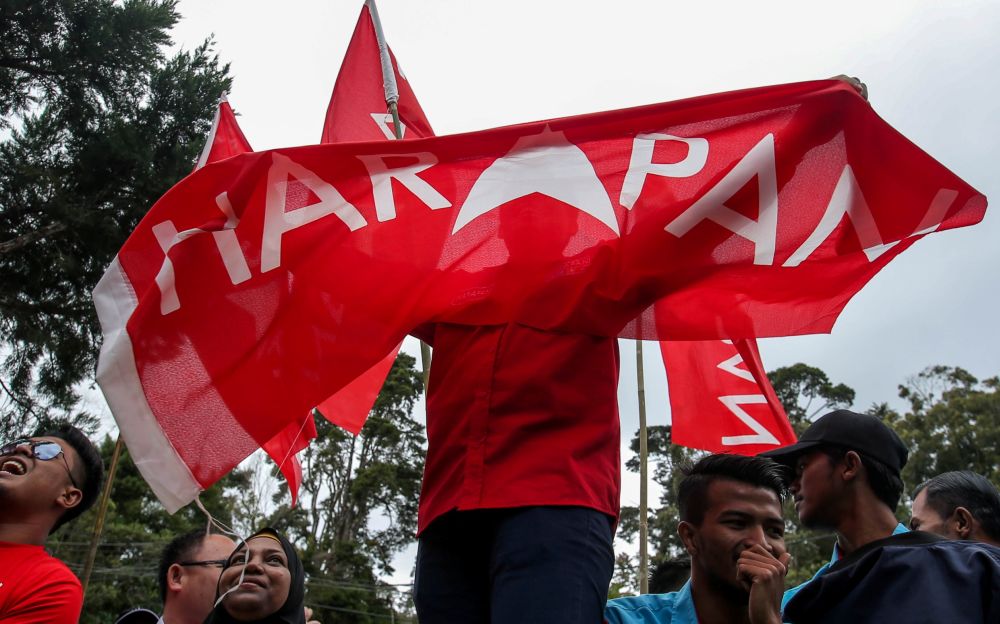KUALA LUMPUR, Nov 21 — Pakatan Harapan (PH) must persevere with its reform agenda and not jettison it for more populist moves in order to capture the support of the increasingly impatient public, political analysts have suggested.
Despite its massive loss in the Tanjung Piai by-election, analysts said public anger shown by voters over a slew of issues can be lessened if PH handles the socio-economic concerns — that would require straddling the line between unpopular reforms and placating the public.
“The whole situation at the moment is that the people are angry about the economy and the approach taken by PH,” Universiti Utara Malaysia’s Mohd Azizudin Mohd Sani told Malay Mail, referring to the ruling coalition’s handling of recent contentious and divisive issues.
“However I do believe these sentiments are temporary. It all depends on how PH understand and rectify this problem and they must do it quickly.
“If not, then even if PH try their best, the people will fail to recognise their efforts,” the professor added.
During the Barisan Nasional (BN) rule, elections were considered a tool to legitimise the rule of the incumbents, and they were organised in a way whereby the structure of the political system prevents the emergence of significant competition.
The electoral process favours the incumbents through mechanisms such as gerrymandering, and state resources were used for pork-barrel policies that border on vote-buying, such as cash handouts in return for political support.
In the run-up to the Tanjung Piai by-election, several PH ministers were criticised for announcing government projects and allocations for the constituency — a form of patronage politics that some said echo BN’s populist moves.

Senior fellow at the Singapore Institute of International Affairs, Oh Ei Sun, warned that these tactics may continue following the monumental loss — especially as PH continues to deal with internal political tussle, whether between or within its component parties.
“PH is likely to continue with its more or less schizophrenic balancing acts of retaining populist moves of the previous regime and advancing a progressive reform agenda at the same time, all the while obsessed with internal power struggles.
“Although Tanjung Piai indicated that their twinned acts lost votes on both ends, this has only intensified the power struggles, as evident in the secret plots and meetings these past few days,” Oh said, among others referring to a meeting of BN MPs with PKR’s Datuk Seri Mohamed Azmin Ali.
“There is no sign of abandoning popular moves in favour or reform agenda, or vice versa. So at the end of the day, it is not surprising that they would have to similarly resort to the advantages of incumbency when it comes to obtaining votes in a general election,” he cautioned.
Analysts also reminded PH that reforms will likely take time, and PH can still afford to correct its course as the 15th general election is still years away.
“PH should not panic and react with knee-jerk cosmetic changes but take some time to think through the results carefully. It needs to relate better with the electorates, fulfil promises, empathize more with the plights of the people and offer stronger hope and vision.
“There seems to be a fundamental disconnect between PH and the electorates which led to the thumping defeat in Tanjung Piai, and it is beyond just a communication problem as previously suspected,” said Amir Fareed Rahim from political risk consultancy firm KRA Group.
.jpg)
Amir said PH need to find a better way to convince the public they are committed to reforms and be ready to cushion the impact of its reforms with concrete policies to protect the welfare of those in the lower income bracket.
“There will be lots of pressure for PH to figure out its next move but hopefully it does not give in to ethically-questionable tactics.
“PH should strive to be better than the previous regime it replaced. After all there is still time till the next GE but they must change their ways,” Amir stressed.
His sentiments were echoed by Azizudin, who pointed out that the result in Tanjung Piai will not necessarily recur due to different voting patterns from area to area, and state to state depending on the dynamics of the seat.
“Using those old BN tactics is a short-term plan. There’s still time to change and if PH do what previous regime did, people will be upset too,” he said.
“People’s sentiments can change in time and different areas have different dynamics of people and ways of voting so this could just be a one off.
“Come GE15 the attitude of the people could change again providing PH are able to fulfil their pledges properly and also we cannot forget that the BN candidate, Wee played a part as he’s Chinese. The Chinese normally vote very strategically,” he added.

The Tanjung Piai parliamentary seat was returned to BN’s fold in the weekend’s by-election in a result most political pundits saw coming, with the former ruling coalition securing up to 75 per cent of votes, including from several Chinese-majority voting streams.
In the final tally, BN’s candidate Datuk Seri Wee Jeck Seng from MCA received 25,466 votes to bag a majority of 15,086 over PH’s Karmaine Sardini from Parti Pribumi Bersatu Malaysia, who received 10,380 votes, confirming pundits’ forecast.



















